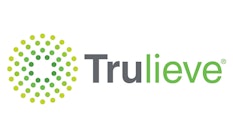
MedMen Enterprises announced plans last year to purchase Illinois-based PharmaCann in a $682-million all-stock deal that would double MedMen’s market reach and give the company a presence in 12 U.S. states.
Now, nearly one year later, the companies are abandoning the transaction.
California-based MedMen said that the PharmaCann acquisition was no longer in the best interest of its shareholders, according to a Chicago Tribune report.
“In sum, the circumstances that led us to make the deal with MedMen a year ago are no longer present today,” Jeremy Unruh, a spokesman for PharmaCann, told Cannabis Business Times. “PharmaCann's leadership believes we are in a great position to move forward as the same PharmaCann our patients, consumers and regulators have come to know and appreciate.”
The transaction has faced its share of regulatory hurdles along the way; for example, in an Aug. 29 statement, the New York Department of Health told Cannabis Business Times that it had “contingently approved the MedMen/PharmaCann merger, pending their ability to meet the stipulations provided by the Department.” These stipulations mandated that PharmaCann close its four retail locations in New York and surrender those licenses to the Department of Health, as the state’s registered organizations (Ros) cannot operate more than four dispensaries (MedMen already operates storefronts in New York).
“The State Department of Health is always clear and open with ROs about New York’s regulatory requirements, and have always diligently worked with ROs, including MedMen and PharmaCann, to help them navigate our regulations and processes to realize their operational goals in New York State,” the department told Cannabis Business Times Oct. 9, in light of the deal falling apart.
MedMen said it now plans to focus on investment in the California market, expanding delivery and loyalty platforms “to grow the business” and deliver on promises to investors, according to a Chicago Sun-Times report.
“We believe it is now in the best interest of our shareholders to deepen, rather than widen, our company’s reach,” MedMen Co-Founder and Chief Executive Adam Bierman said in a statement to the news outlet.
All is not lost, however, as MedMen is still getting one of PharmaCann’s two growing facilities, a dispensary and a license to open another retail location in Illinois in exchange for forgiving a line of credit that MedMen had extended to PharmaCann, which totaled about $21 million, according to the Chicago Tribune.
Previously, a single retail location in Oak Park was MedMen’s only presence in Illinois, the Chicago Tribune reported, and these additional assets will help MedMen expand in the state just in time for the launch of its adult-use cannabis market on Jan. 1, 2020. (Only existing cultivators are allowed to supply the adult-use market until late 2020, and PharmaCann’s two cultivation facilities were among the first to receive adult-use licenses.)
PharmaCann is also giving MedMen a vertically integrated cannabis license in Virginia, according to a company press release.
When the dust settles, PharmaCann will still hold one cultivation facility and four operational retail locations in Illinois, plus the opportunity to open four additional dispensaries. The company, founded in 2014, also operates retail stores and cultivation facilities across New York, Maryland and Massachusetts, and owns dispensary licenses in Pennsylvania, Maryland, Massachusetts, Ohio, Virginia and Michigan.
The MedMen-PharmaCann break-up signifies broader changes in the rapidly evolving cannabis marketplace, Unruh told the Chicago Sun-Times.
“Economic conditions that originally led us to our deal with MedMen are no longer present in this lightning-fast marketplace,” he told the news outlet. “Shares of publicly-traded cannabis companies are down dramatically and the regulatory hurdles among the various states are challenging. Our private shareholders are aligned with our leadership that PharmaCann’s best path forward is without MedMen."























